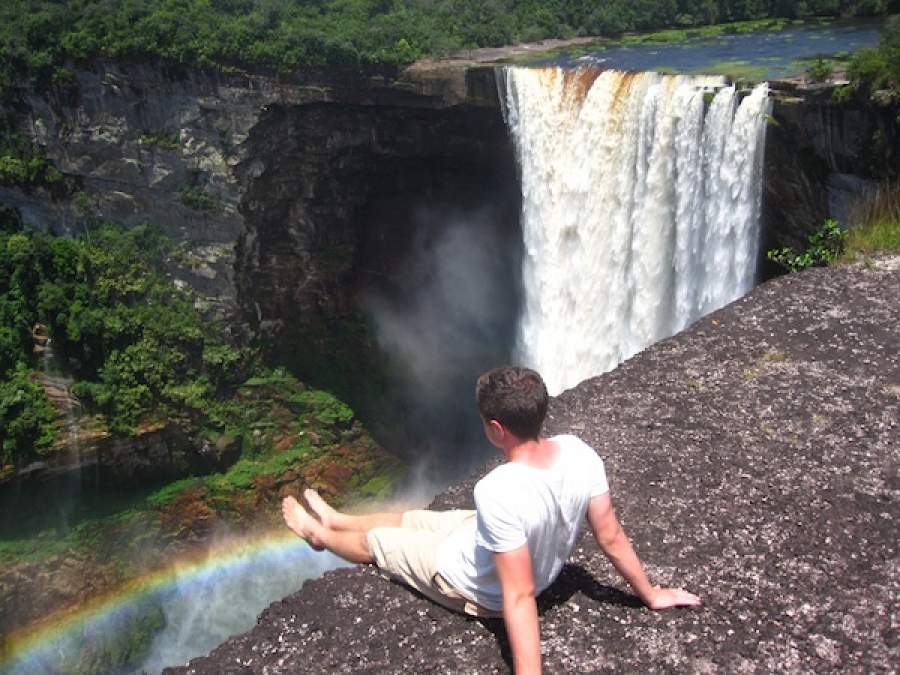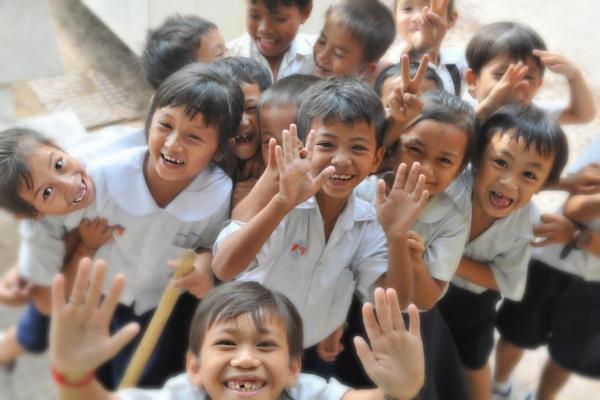Bouncing from one continent to another isn’t the easiest thing to do. My Guyanese adventure is over, but definitely not forgotten. This type of experience leaves an impression on you and can even change you—although you might not realize it until you’ve settled back in at home. People often worry about experiencing a culture shock when they travel but what they often neglect is the impact that returning home can have on you. I’m referring to reverse culture shock.
I’m borrowing the song title from a local band to illustrate just how dynamic culture shock can be. I like to think of it as a spring.
1) Before we leave on such a journey, we are just hanging in the equilibrium position. This is our “norm” where we feel most comfortable.
2) Upon arrival in the host country, however, there are so many different variables that are hurled our way that we are pushed out of our comfort zone. Thinking back to the spring, this is when the spring is compressed and not in equilibrium. This however is something that everyone expects and is therefore prepared for. What can sometimes be problematic is upon returning home.
3) People think that they will return back their “norm,” whatever that may be. However, we know that when a spring is compressed it will not simply return to the starting point, but will in fact stretch far passed the original position. It is the same with culture shock. There are different degrees of reverse culture shock and each one can manifest themselves in many ways.
Can you tell that I’m back in school now?
Basically, what I’m trying to illustrate is that the important thing to remember is that reverse culture shock is normal, but is something to be aware of and look out for.
For me, it was the small things that used to catch me off -uard, like not needing to make sure I had my headlamp close by just in case the power went out (although it came in handy after losing the power due to a hurricane), being able to look in the mirror, and the big one, being able to drink the water from the tap.
Let’s face it, who isn’t going to be affected by such an experience? In my opinion, the best thing to do is be proactive. Anticipate that things will not be exactly how you left them, or, contrarily, that they will be exactly how you left them while you yourself have changed. In my opinion, the latter is the harder of the two.
Another thing to keep in mind is that even though the people that shared in your experience may no longer be around, there is still an abundance of people wanting to learn about what you learned and discovered. You could host a cultural night where you cook traditional food from your host country and use some of the customs that are unique to the country you were in. You’re probably thinking lame right? Well, perhaps the more lame the better! You can be as creative as you want and share it with new friends and family and you remember the old ones. Have fun with it!
You will be a different person because of your experience abroad, but don’t fear it or fight it. Take what you learned and apply it into how you life your life. Even small things such as mannerisms or speech intonations could change after such a trip. Just go with it!
It will be a readjustment to return to your home, but don’t make it a forgetting process too. Going back to the spring analogy; things will return to a natural balance, but it takes time. This might differ for different people, but it something we all have to deal with. Take it in stride and integrate what you’ve learned and integrate into your new self.
With all that said and done, it’s that sad time to end my final blog post. Thank you for listening, and I hope that reading about my experiences has helped others with their decisions, stress, outlook, or even just to put a smile to their lips over their steaming mugs of tea as they read along. Documenting all of this not only in a travel journal, but also in blog form has made it that much more of a memorable experience. Cheers to everyone and Namaste!
Add this article to your reading list




